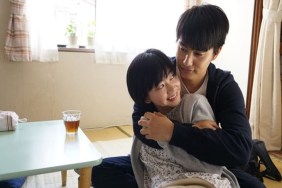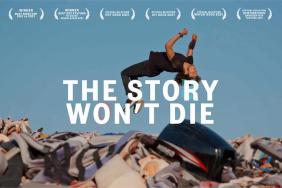Cast:
Maggie Gyllenhaal as Jamie Fitzpatrick
Viola Davis as Nona Alberts
Oscar Isaac as Michael Perry
Holly Hunter as Evelyn Riske
Rosie Perez as Breena Harper
Emily Alyn Lind as Malia Fitzpatrick
Dante Brown as Cody Alberts
Lance Reddick as Charles Alberts
Ving Rhames as Principal Thompson
Bill Nunn as Principal Holland
Ned Eisenberg as Arthur Gould
Marianne Jean-Baptiste as Olivia Lopez
Liza Colón-Zayas as Yvonne
Nancy Bach as Deborah
Keith Flippen as Ben
Robert Haley as Tim
Sarab Kamoo as Principal Chamudes
Directed by Daniel Barnz
Story:
Jamie Fitzpatrick (Maggie Gyllenhaal) is a hard-working single mother who feels that her dyslexic daughter isn’t getting the attention from teachers she needs to learn how to read, so with the help of one of the school’s teachers (Viola Davis), they look into what would be involved with taking over the school and running it in a way that will help the kids learn.
Analysis:
Public education and the problems with the school system is a hot topic issue right now and while there will never be any easy answers to the right way to teach kids and “Won’t Back Down” never pretends otherwise, Daniel Barnz’s third movie offers a light and optimistic take on what could happen if parents and teachers come together to try to make a difference.
The key to the film’s “inspired by actual events” tagline is that it’s only “inspired” by what has been happening in parts of the country. The characters played by Maggie Gyllenhaal, Viola Davis and others don’t exist in real life and as far as we know, there isn’t an Adams Elementary School in Pittsburgh. In other words, if you’re looking for facts and data, you might be better off watching a documentary on the subject such as Davis Guggenheim’s “Waiting for Superman,’” which takes a similarly biased look at how to improve school systems
When the film opens with a young girl trying to struggle her way through reading in front of her class, you may already be groaning, thinking you’ll know what to expect, and you may be half-right, but over the course of the next two hours, we get to watch a fairly-rounded look at the ups and downs of trying to fix a broken school. Gyllenhaal’s character Jamie Fitzpatrick knows it won’t be easy to turn her daughter’s school around and she receives a lot of friction from the other teachers until she convinces Viola Davis’ Nona to help her sway them.
Davis is quite fabulous in the role of a teacher trying to rally others to take over the school, possessing such a commanding presence she’s convincing in everything required of the role. Gyllenhaal’s character is a bit harder to figure out even though her motivations of trying to get her dyslexic daughter a proper education are noble and worthwhile enough. Her personality goes through quite a transformation, starting off as a troubled single mother who is always angry, but then transforming into a woman so bubbly and happy she tends to get abrasive.
The movie’s a two-hander that follows the two women as they make their way through all the red tape, but they’re surrounded by a solid cast, the most impressive of them being Holly Hunter as the head of the teacher’s union who acts as the voice of reason in their endeavor, while Oscar Isaac plays a teacher who loves working with kids and becomes an obvious love interest for Gyllenhaal. There’s even a rather unconventional choice in having Ving Rhames appear as the principal of a better public school that’s holding a lottery.
There’s a lot of drama, almost too much at times, as the duo faces insurmountable obstacles that keep piling on top of one another, and Barnz does a good job pulling things together despite having so many characters and maybe a few too many subplots–getting into Nona’s dark history probably wasn’t entirely necessary as some added last-minute third act melodrama. It’s a bit clichéd at times, particularly the predictable ending, and a bit hokey at others–like having the teachers line dancing to celebrate a victory. Barnz chooses to use moments like that last one to fulfill the Mary Poppins adage about having a spoonful of sugar to help the medicine go down, and the film mainly works because there’s enough going on to keep the viewer interested even if they’ve already figured out the outcome.
The Bottom Line:
The growing problems with many of the country’s public school systems is a complex matter, and Daniel Barnz’s drama never pretends to have clear answers. Instead, it tries to create an entertaining inspirational story about people making a difference that should at least get the viewer interested in exploring the realities in making change and consider doing more.










